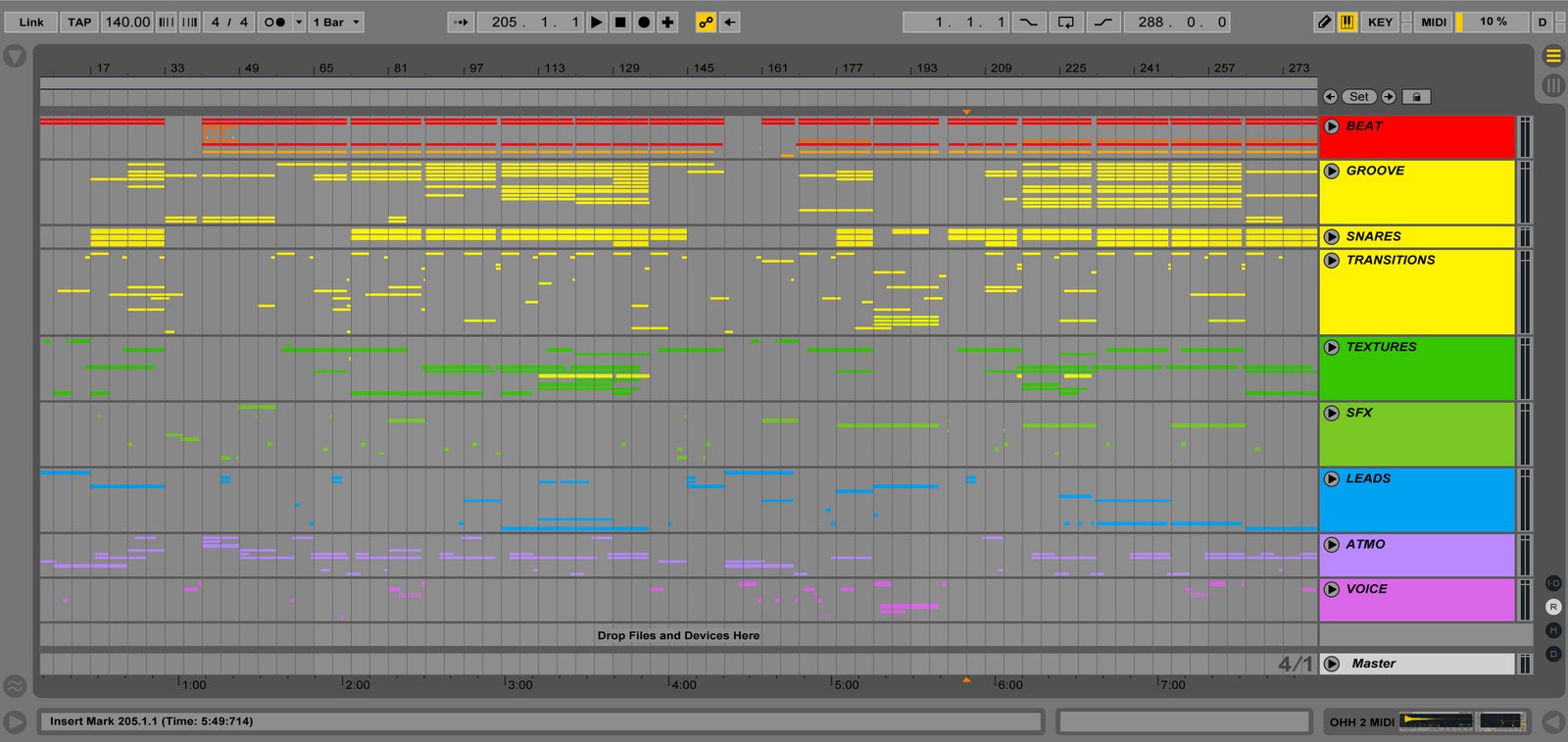Weekly review and quarterly planning: the productivity system that helps me to achieve goals
Added in August 2024: this article now has a video version! I’d highly recommend watching the video first and then reading the article additional details:
I like productivity apps: to-dos, calendars, notes, timers, and things like that of all kinds. I like being organised and that feeling of satisfaction by completing a task (which is probably just a dopamine release, but whatever).
But what is productivity, exactly? What does it mean to be productive? If I tick ten to-do’s a day, am I productive? And what about other things that I want to do but don’t do? The usual excuse is, “I don’t have time for that”, so does it mean I need to improve my time management?
I started asking myself these questions about a year ago, and eventually, they led me to the whole system that I’m going to share today.
Backstory
One day, I remember completing yet another dozen tasks, but strangely enough, I felt it didn’t really move me anywhere. All of those tasks that I ticked every day were repetitive little tasks that helped to maintain where I am but didn’t contribute to moving the needle for me.
At the same time, ironically, I always felt behind and thought I could have done more. For example, I could release more music, but I had an excuse that I didn’t have time and felt bad about it.
So, on the one hand, I didn’t feel any progress despite completing many tasks. On the other hand, I felt guilt and anxiety for not doing things I could’ve done. That’s where I was in the middle of 2020 or so.
After that, I started to think about it: “Okay, I’m stuck like a hamster in the wheel and don’t move anywhere. Hm, but where exactly do I want to go in the first place?”.
That made me think even deeper, or rather higher if you think about it as zooming out from the ground level, and I asked myself what my goals are. Literally, my goals in life. “What do I want?” – that simple question became game-changing.
Now let me explain to you the key concepts of this approach, and then I’ll give some tips on how to turn it into a doable system that you can copy and use for yourself.
Goals
The first important thing is to write down your goals. You can use a pen and paper, or any note-taking app like Apple Notes, Google Docs, Bear, Notion, or whatever. I use Craft, but again, it doesn’t matter.
To find out what your goals are, you need to ask yourself “what do I want”. Asking this question seems obvious on paper, and yet we constantly get so busy and induced with information and distractions that we rarely ask ourselves any questions of that kind. For this reason, you may struggle to answer this question initially, and that’s okay, give yourself some time.
A goal can be anything. Spending a vacation in Barcelona can be a goal. Writing a sci-fi novel can be a goal. Releasing an album. Launching a course. Buying a house. Anything you want.
When writing down goals, you need to be very specific. And there is also a very tricky difference between focusing on the input versus the output.
For example, “have at least one gig a month” sounds like a nice goal for a starting DJ, right? The problem is a gig is an output, the result, and generally speaking, we have no or very little control over the outputs. You see, to get a gig, someone needs to book you to make it happen. And how do you know for certain whether someone will or will not book you? Well, you don’t!
Another and probably more common example of goals focused on the outputs could be “get 5 kg of lean mass” or “lose 5 kg of weight”. And although such numbers are very specific which is supposed to be a good thing, you don’t have direct control over them. Furthermore, not meeting those numbers can lead to disappointment and frustration. Instead, I’d suggest writing this as “Make a habit of exercising three times a week”, which is much more tangible and within your control.
Here’s something interesting. If you think about the example above, “Make a habit of exercising three times a week” doesn’t look like a goal unless exercising itself is your goal. I would say, for most people, exercising is probably a way to get healthier and feel more attractive. So in this case, “Get healthier and feel more attractive” might be the real goal, and exercising three times a week is just one of the many ways of achieving this goal. Be honest with yourself.
Values
If you are lucky enough and know what you want, then the answer to the question “why do I want this” is your value. For example, someone may say “I want to work remotely”, and that’s the goal. But why? The answer might be, “Because I value the freedom to work from anywhere I want”, and so in that case “the freedom” is the value for that person.
But sometimes it’s less obvious. Since we live in a monetary world, many things are tight to money or the possibilities it can provide, whether we like it or not. For example, oftentimes a person might see their job as a way of paying the bills, but not the actual thing they enjoy doing. So to eliminate money from the equation, I find the following thought experiment useful.
Imagine that you’ve got one million dollars. Or that you have an almost infinite amount of money, so you never need to worry about them again. Or that society is free from money and everyone does whatever they want. You can play around with the exact scenario of this thought experiment that feels best for you, but the main question is, what would you do then? How would you spend your resources, time and energy? What would change for you?
I’ll give you my example. At some point, I supposed that I run my advice series as one of the ways to contribute to increasing my income. Although the advice series is completely free, the idea was that when I share some helpful information, people start to see my expertise and the value I provide, so it helps to spread the word about my name, and eventually that influence leads to more business opportunities and hence more income. If you shorten the path, it can be expressed like “I run the advice series → I get more income”. And as a matter of fact, this blog does indeed give me an extra indirect income, as some people I worked with explicitly said that they wanted to do some business with me because of my writings, which only supported my initial belief.
However, after having that thought experiment I described above, I realised nothing would change for me. I would still run this blog and the advice series even if I had all money in the world. As it turns out, my motivation for doing that wasn’t financial at all. And that shift of perspective changed everything for me.
After that discovery, I went through all activities and things I do (or don’t do) and asked myself why. Sometimes it took me several layers of “why’s” to get to the real answers. For example, “I do A. Why? To get B. Why?”. That articulation of why is crucial, and I’ve learned so many things about myself. For example, I realised that I didn’t produce music due to a so-called lack of time but simply because I couldn’t answer the question “why”. It was a revelation.
So write down your values next to your goals or somewhere. These are the things that are important to you, your motivation. And they are usually very basic, like health, influence, fame, curiosity, et cetera. Again, be honest with yourself and make sure to understand why you want (or don’t want) certain things, as this understanding is crucial.
Projects and tasks
Once you know what and why do you want to achieve, it’s time to ask yourself “how am I going to achieve this”. This is where projects come into place.
A project is an action that requires more than a single step to complete. It’s a group of step-by-step to-do’s that ultimately will help you to achieve a particular goal. Some complex (usually long-term) goals may have several projects; others may have just one.
For example, “Plan a trip to Barcelona” is a project because it involves more than one step. These steps might include: decide on the exact dates, purchase flight tickets, book a hotel, plan the itinerary, research local sights to visit, pack a suitcase, etc. All of those little individual steps I call tasks, or to-dos.
To keep track of your projects, I highly suggest using some form of task manager. Again, it can be a pen and paper, an app, or whatever. I have another article on how I use a to-do list to manage my tasks and projects, so I won’t go over the details here.
Quarterly planning
This system of setting your goals, understanding your values, and executing them with actionable projects works great, at least for me. But life isn’t static; our priorities, conditions, and desires change. I use quarterly planning to reflect those changes, and the name suggests how often I do it.
Quarterly planning is a 1-on-1 meeting where I check in with myself. To make this process fun and enjoyable, I usually go to a new place such as a café where I can sit with my laptop and a cup of tea for about an hour or two without distractions.
During this process, I do the following:
- Reflect on the last quarter’s results: write shortly about what I’ve been working on, what I’ve succeeded and failed at, and how I feel.
- Mark previous goals completed if I have any.
- Set new goals for the next quarter, making sure those goals align with my values and articulate why I want to achieve them. Sometimes I might have dozens of goals, but trying to achieve them all simultaneously would be not realistic. During this planning, I pick up just some of them, typically from one to three, and set them as a priority for the next quarter.
- Identify actionable projects for these goals for the next quarter and add them to the task manager as a list of specific things to do.
I find this process essential for the piece of mind and clear vision. After that, I know exactly what to do and how things I do every day actually move me towards my goals. Just knowing this brings so much calm and clarity.
Do you remember at the beginning of the article I said that I felt guilty for not doing things I could’ve done? This priority system treats exactly this symptom. By saying “the next quarter I’m going to work on A, B, and C”, I also say to myself “I’m not going to work on D, E, F, and everything else”, which is a huge deal. Compare “I don’t do X because I don’t have time for it” and “I don’t do it because I have consciously chosen to do other things that are more meaningful to me now”, that difference is a big quality shift in the attitude.
To me, doing this planning every three months turned out to be the sweet spot. One and two months seem too short for many of my projects, whereas four, five, and more months seem way too far in the future.
Weekly reviews
While quarterly planning gives a strategic birds-eye view, weekly reviews help me to stay on track on a more tactical level.
During this review, I do the following:
- Check calendar events for the upcoming week to evaluate how much time I can spend on my tasks on each day.
- Figure out what I should focus on next week. One of the reasons I love my task manager, Things 3, is because I can set not only deadlines for the tasks but also the day I’m planning to start working on a given task. So I usually pick some important tasks from my projects and decide when I’m going to work on them.
- Set deadlines and reminders for important tasks to ensure I didn’t miss anything.
- Move to “Someday” tasks I won’t be doing in the coming weeks. This is again something about my particular task manager app, Things 3, but basically this “Someday” feature hides all tasks that I don’t need right now, so I always have only relevant to-dos in front of me.
- Remove tasks that are no longer relevant or outdated, which should be self-explanatory.
Basically, this whole process is a quick clean up where I make sure that all action steps for my goals are reflected in my task manager appropriately. Unlike quarter planning which usually takes 1-2 hours as I think about my life goals, weekly reviews take about 20 minutes. I usually do them on Sundays to feel ready for the week ahead, so on Monday morning I wake up with a list of to-dos waiting for me, and I know that these tasks have meaning and contribute to my goals.

Recap
There was probably a lot of information to digest, so let me quickly summarise:
- Being productive means doing things that matter to you, your goals. It’s not about quantity but rather direction and consistency.
- Write down your goals. Things you want in your life, no matter how big or small. Take your time.
- Think about why you want to achieve those goals, that will be your values. Write them down too. The answers might surprise you.
- Identify actionable projects for your goals, or the steps that would move you towards them.
- Transfer those projects and to-dos to a task manager.
- Check in with yourself and set priority goals every quarter to stay calm and focused.
- Clean up the task manager weekly to stay on track.
Credit
Last but not least, I would like to give credit to Peter Akkies. Although I’ve read many of these ideas in various articles and books, his work inspired and “clicked” with me the most.
I hope my humble article will help someone, just like Peter’s helped me.



Interestingly this sounds quite a bit like the same foundations upon which Agile project management is based. Agile is really intended for scaling this up to team-sizes. It’s also often associated with software development projects but it is 100% not just for writing software.
A really important part of that though which isn’t mentioned so much here are:
Thanks, Craig! Yes, there are definitely some similarities between this approach and Agile.
As for the measurement, I actually add this next to the goal, literally writing down a sentence like “I’ll consider this goal completed when ...”. It does help a lot, indeed.
However, when reflecting on the last quarter’s results, I’m trying to catch my feelings rather than empirical data. You know, “how am I feeling after achieving (or not achieving yet) certain goals; do I have enough resources and motivation to pursue the next goals; am I getting happier?”. You know, that kind of questions that may sound childish, but I found them equally important
Do you use Agile (or any system for that matter) for your personal goal setting?